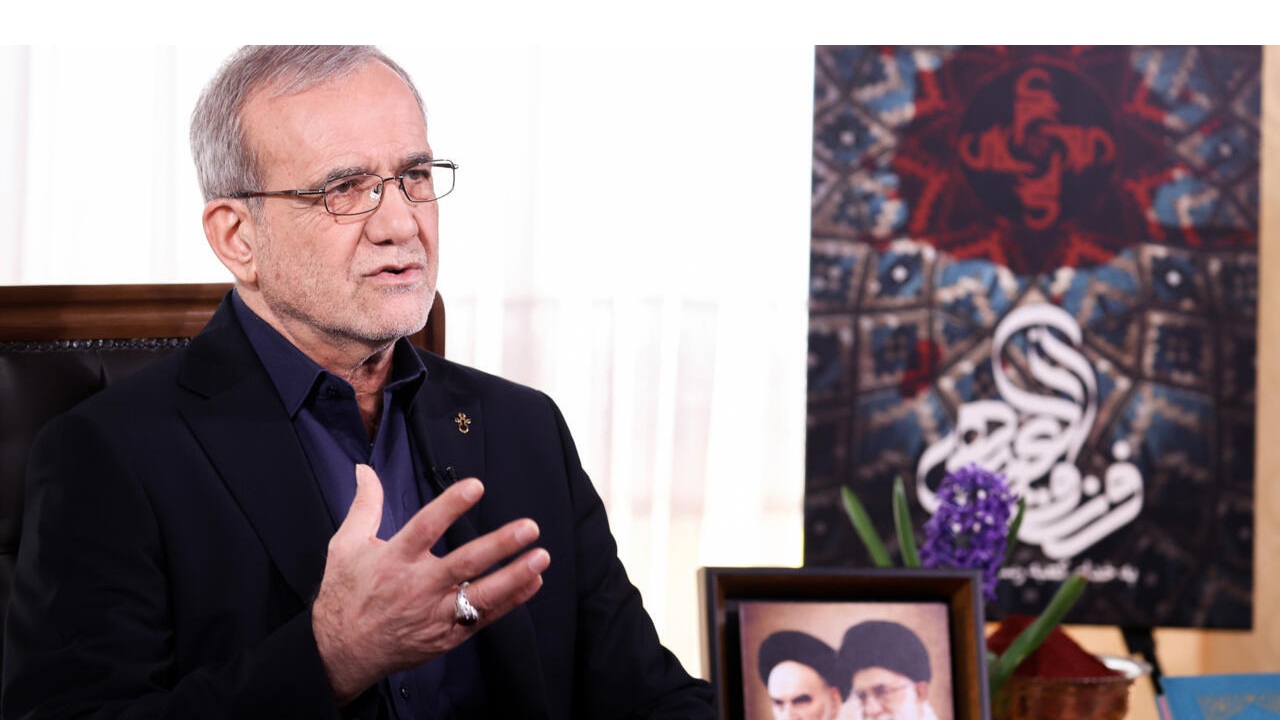Iran’s newly elected President, Masoud Pezeshkian, has voiced a willingness to engage in direct dialogue with the United States to resolve longstanding tensions.
However, he cautioned that trust remains a significant obstacle, especially in light of recent military actions by both the U.S. and Israel.
In a wide-ranging interview with conservative American commentator Tucker Carlson, recorded on Saturday and released Monday,
Pezeshkian emphasized that he believes many of the disputes between Tehran and Washington could be addressed through open and honest discussions.
“I believe our differences with the United States could be resolved quite easily through dialogue,” he said.
This statement comes shortly after a major escalation in hostilities. On June 13, Israel launched a surprise bombing campaign targeting Iranian military and scientific figures.
The attacks resulted in the deaths of key Iranian military commanders and nuclear scientists.
The assault occurred just two days before Iran and the United States were scheduled to resume stalled negotiations over Tehran’s nuclear program, effectively derailing the talks.
The situation worsened further when, on June 21, the United States carried out its own military strikes, targeting three major Iranian nuclear facilities located in Fordow, Natanz, and Isfahan.
These strikes, occurring within a week of the Israeli assault, marked a serious escalation in the conflict.
According to Iranian state media, the combined attacks have left more than 1,060 people dead in the span of 12 days.
President Pezeshkian directly accused Israel of sabotaging the diplomatic efforts and undermining the peace process.
“How can we trust the United States again when their ally is allowed to attack us in the midst of negotiations?” he asked.
He suggested that any future discussions would be clouded by the fear of renewed violence from Israel, potentially with U.S. backing or tacit approval.
The Iranian president went even further, alleging that Israel had attempted to assassinate him during the June attacks.
When asked by Carlson whether he believed he was targeted, Pezeshkian responded affirmatively.
He claimed that Israeli forces had tried to bomb a location where he was holding a high-level meeting.
“Yes, they tried. But they failed,” he said, adding that the attack was specifically Israeli and not carried out by the U.S.
These accusations were heightened by comments from Israeli Prime Minister Benjamin Netanyahu.
Netanyahu at the same time, suggested that assassinating Iran’s Supreme Leader Ayatollah Ali Khamenei could bring an end to the conflict.
Reports indicated that U.S. President Donald Trump had vetoed such a proposal, which Pezeshkian referenced as a sign of the dangerous brinkmanship being promoted by the Israeli leadership.
Despite a ceasefire between Iran and Israel going into effect on June 24, Pezeshkian used the interview to issue a warning about Netanyahu’s intentions.
He accused the Israeli prime minister of pursuing a policy of perpetual conflict in the Middle East and cautioned that the U.S. should not be dragged into what he called “forever wars” by Israeli interests.
“President Trump has the capacity to lead the region toward peace and a more stable future,” Pezeshkian said.
“He can either restrain Israel and push for dialogue or risk being pulled into an endless conflict, a swamp, so to speak.”
Netanyahu was in Washington on Monday for meetings at the White House, where Iran and its nuclear ambitions were expected to top the agenda.
Trump, speaking ahead of the talks, praised the recent U.S. strikes on Iranian nuclear facilities, calling them a “tremendous success.”
He claimed that the strikes had permanently crippled Iran’s nuclear program, although he acknowledged that Tehran might still attempt to restart its activities elsewhere.
The remarks from both sides highlight the fragility of the current ceasefire and the uncertain future of nuclear negotiations.
While President Pezeshkian appears open to talks, the deep-seated mistrust, especially over Israel’s role and U.S. complicity, continues to cast a long shadow over any potential resolution.



